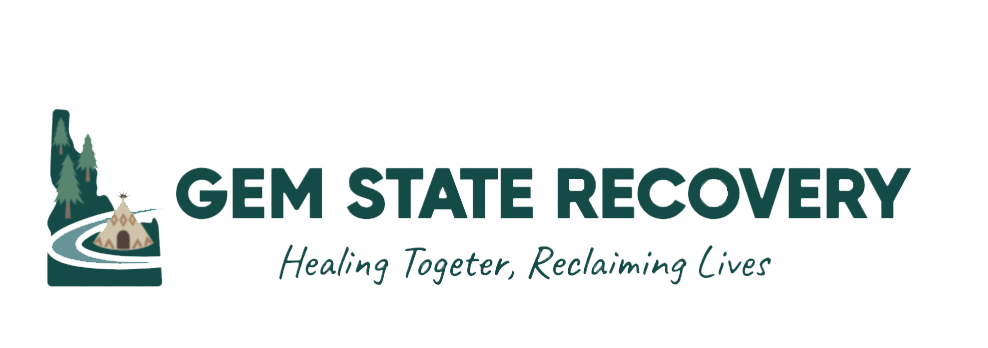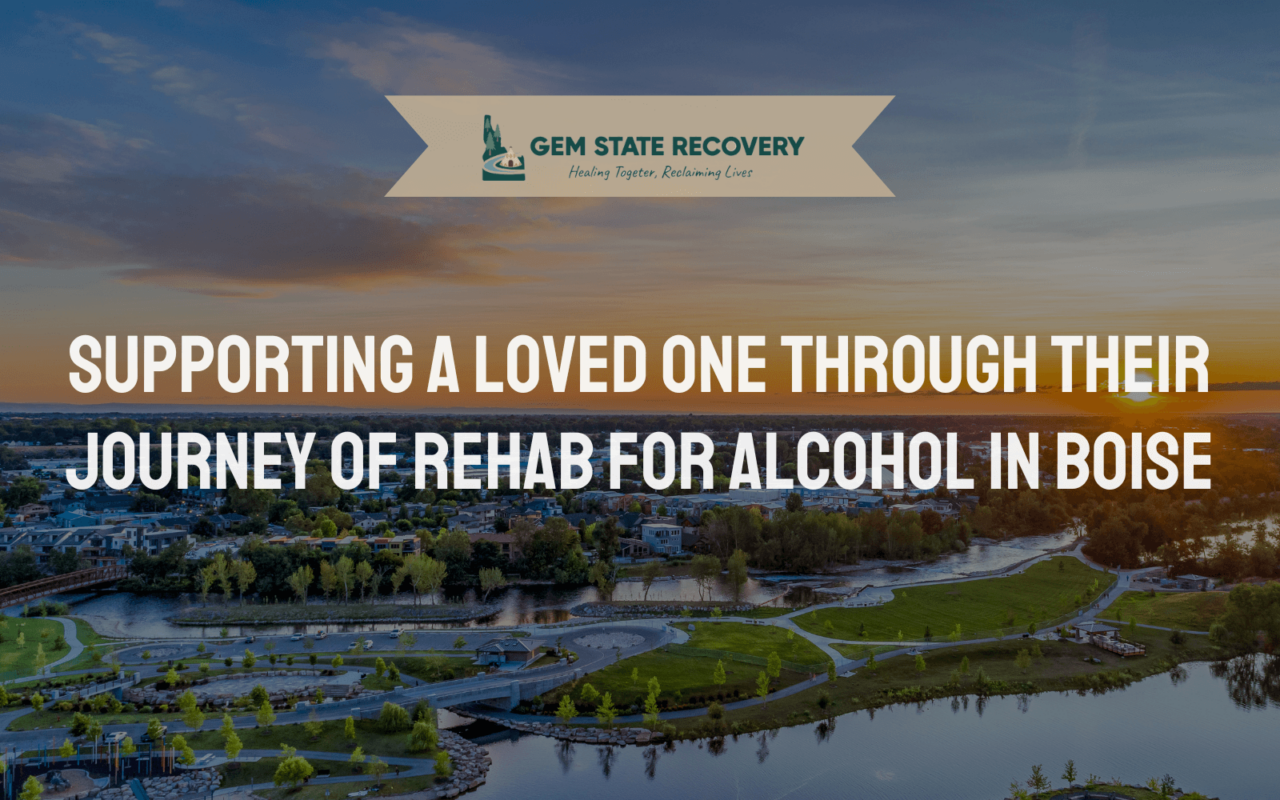When someone close to you decides to seek help for alcohol addiction, it can bring a wave of relief—and a storm of emotions. You may feel hopeful, scared, exhausted, or even uncertain about your role in the recovery process. These are all normal feelings. The truth is, when a loved one enters rehab for alcohol in Boise, it marks a turning point for both of you.
At Gem State Recovery, we’ve walked alongside countless families during this life-changing journey. We’ve seen firsthand how powerful family support can be—not only in helping someone stay sober but in giving them the courage to believe recovery is possible. If you’re wondering how to show up for someone you love, this guide will walk you through what to expect and how to support them every step of the way.
Alcohol Addiction and the Need for Support
Alcohol use disorder (AUD) doesn’t just affect the individual—it affects their family, their friendships, their workplace, and their community. When someone enters rehab for alcohol in Boise, they’re taking an important step toward reclaiming their life. But healing doesn’t happen in isolation.
Support is a vital part of long-term recovery. It reinforces accountability, strengthens motivation, and helps reduce feelings of shame and isolation. Whether you’re a parent, partner, sibling, or friend, you have the potential to make a real difference.
But being supportive doesn’t mean doing everything or pretending to have all the answers. It means showing up, setting boundaries, and choosing empathy—even when things are difficult.
What to Expect During Rehab for Alcohol in Boise
Not all rehab programs are created equal, but at Gem State Recovery, we follow a structured and supportive model that treats the whole person—not just their symptoms. Here’s a breakdown of what your loved one may experience during rehab for alcohol in Boise:
Medical Detox (If Needed)
Before therapy begins, the body has to adjust to life without alcohol. Medical detox helps manage withdrawal symptoms in a safe, supervised setting. This stage can last a few days to a week, depending on the severity of dependence.
Residential or Outpatient Treatment
Once detox is complete, treatment begins. In our Boise programs, this can mean full-time residential care or a flexible outpatient plan. Both offer individual therapy, group sessions, educational workshops, life-skills training, and trauma-informed care.
Mental Health Support
Many people in alcohol rehab also struggle with depression, anxiety, PTSD, or other mental health challenges. We address co-occurring disorders head-on, because untreated mental illness can become a barrier to staying sober.
Family Involvement
We invite families to participate in therapy sessions and educational programs. These are opportunities to rebuild trust, improve communication, and learn how to be a positive support system post-treatment.
Aftercare and Relapse Prevention
Before completing treatment, every client works with our team to develop a personalized aftercare plan. This might include continued therapy, sober housing, 12-step groups, or alumni support.
Knowing what your loved one is experiencing inside rehab for alcohol in Boise can help you offer relevant support—and manage your own expectations along the way.
How to Offer Meaningful Support
You don’t need to fix everything. You don’t need to be perfect. You just need to be present and committed. Here’s how you can offer meaningful, sustainable support during and after your loved one’s treatment:
Be Informed
Educate yourself as much as possible about alcohol use disorder, the science of addiction, and the recovery process. Understanding that addiction is a chronic disease—not a moral failing or a choice—allows you to approach your loved one with greater compassion and less judgment. The more you know, the better equipped you’ll be to navigate the challenges of supporting someone in recovery.
Helpful resources to get started include:
- SAMHSA (Substance Abuse and Mental Health Services Administration): A government resource offering free educational materials, hotlines, and toolkits for families and individuals.
- Al-Anon or other support groups for families: These groups provide a safe space to connect with others who are supporting a loved one through recovery, offering shared experiences and mutual encouragement.
- Literature recommended by our team at Gem State Recovery: Reading well-researched books or articles can provide deeper insights into the complexities of addiction and recovery.
The more informed you are, the more you’ll be able to offer understanding and meaningful support during this journey.
Practice Compassionate Communication
Rehab can be an emotional rollercoaster, both for your loved one and for you. It’s normal to feel a mix of emotions, such as anger over past events or uncertainty about how to express your feelings. That’s okay. What matters is learning how to communicate in a way that fosters trust, reduces tension, and supports recovery.
Here are some effective communication tools to use:
- Use “I” statements: Focus on how the situation makes you feel rather than placing blame. For example, say, “I feel hurt when you drink,” instead of, “You always screw things up.”
- Practice active listening: Let them share their feelings and concerns without interrupting. Sometimes just listening can provide immense support.
- Avoid blaming or guilt trips: These can create shame and push your loved one further away. Instead, aim to build a supportive and constructive dialogue.
- Celebrate progress, even when it’s small: Recovery is a journey, and every step forward, no matter how minor it seems, deserves recognition.
At Gem State Recovery, we coach families on how to use compassionate communication to strengthen relationships and foster a more positive recovery environment.
Set Healthy Boundaries
Supporting someone in recovery doesn’t mean sacrificing your own health, well-being, or sense of self. In fact, setting and maintaining healthy boundaries is often one of the most loving things you can do. Boundaries help protect both you and your loved one, ensuring that your support remains constructive rather than enabling harmful behaviors.
Here are some examples of healthy boundaries:
- Saying no to financial support if it enables drinking: It’s important to ensure that any help you provide is constructive rather than fueling addiction.
- Declining to be around alcohol use: Let your loved one know that you cannot support their recovery while being exposed to environments where alcohol is present.
- Requiring therapy or program attendance as a condition of certain support: This reinforces the importance of taking recovery seriously while allowing you to support their progress in meaningful ways.
Setting boundaries isn’t about shutting your loved one out; it’s about preserving your own emotional health while encouraging their accountability. At Gem State Recovery, we guide families in learning how to set boundaries that are firm yet compassionate, helping you stay connected while protecting your own well-being.
By staying informed, communicating with compassion, and maintaining healthy boundaries, you can play a meaningful role in your loved one’s recovery while also taking care of yourself. Recovery is a journey for everyone involved, and with the right tools and support, healing is possible.
Coping With Your Own Emotions
It’s easy to focus so much on your loved one that you forget your own healing. But addiction doesn’t just affect the person struggling—it impacts families deeply. You may be navigating broken trust, feelings of burnout, financial strain, or even trauma from the experience. It’s important to remember that you’re not alone, and your well-being matters just as much as theirs.
You deserve support, too. Here are some ways to prioritize your own healing:
- Attend therapy or counseling to process your emotions and gain strategies for coping.
- Join a support group for families affected by addiction. Sharing your experiences with others who understand can be incredibly validating and helpful.
- Talk to a trusted friend, family member, or spiritual advisor. Sometimes, simply expressing what you’re feeling out loud can bring relief.
- Allow yourself to feel a full range of emotions—grief, anger, sadness, relief, or even guilt. They’re all valid, and learning to sit with them is part of the healing process.
Supporting someone in rehab for alcohol in Boise is a marathon, not a sprint. It takes time, patience, and strength. The more you take care of yourself—mentally, emotionally, and physically—the more you’ll have to give to your loved one as they go through their own journey toward recovery. Remember, self-care is not selfish; it’s essential.

After Rehab: Staying Connected Without Taking Over
One of the most misunderstood parts of recovery happens after rehab. It’s easy to think the hard part is over—but staying sober requires daily commitment, structure, and support.
Here’s how you can stay involved without taking over:
Respect Their Plan
When your loved one leaves rehab for alcohol in Boise, they will likely have an aftercare plan tailored to their recovery journey. This plan may include individual or group therapy sessions, regular attendance at support groups like AA, transitioning to a sober living environment, or adopting new lifestyle habits such as exercise or mindfulness practices. It’s crucial to trust the professionals who designed this plan and encourage your loved one to stick with it, even when it feels challenging. Offer your support by showing interest in their progress and being patient as they adjust to their new routine.
Avoid Triggers in the Home
Creating a supportive environment is essential for recovery. Start by removing alcohol or any other substances from shared spaces in your home. Pay close attention to the environment you both share—this might mean avoiding social gatherings where heavy drinking is common, or finding new activities to enjoy together that don’t involve alcohol. By taking these steps, you’re helping to eliminate potential temptations and showing your loved one that their recovery is a priority.
Celebrate Sobriety Milestones
In recovery, every sober day is a victory. Whether it’s one week, one month, or one year of sobriety, make an effort to celebrate these milestones. Acknowledge their hard work with meaningful gestures, such as a heartfelt note, a small gift, or an activity they enjoy. These moments of recognition can provide motivation and remind them of how far they’ve come. Remember, sobriety is not a one-time event—it’s a lifelong journey made up of countless small, daily successes.
Be Open About Your Concerns
If you notice behaviors that worry you, don’t hesitate to speak up with care and compassion. Open communication can be a powerful tool in maintaining trust and offering support. Relapse, although difficult, does not mean failure—it’s often a part of the recovery process and signals a need for additional support or adjustments to their plan. Approach these conversations with love, and be prepared to hold them accountable while reassuring them that you’re there to help, not judge. Encourage them to discuss these challenges with their therapist or support group to ensure they stay on track.
What If They Relapse?
Relapse is common, particularly in the first year following treatment, and it’s important to remember that it doesn’t mean failure. If it happens, don’t panic—and avoid shaming your loved one. Relapse can be an opportunity to learn and grow in the recovery journey.
Here are some steps to take if your loved one experiences a relapse:
- Stay calm and express your concern without judgment. Let them know you’re there to support them.
- Encourage your loved one to reach out to their therapist, recovery coach, or sponsor as soon as possible to address the relapse and refocus on their recovery.
- Revisit treatment options, which may include additional therapy sessions, outpatient support, or returning to rehab for alcohol in Boise or another trusted program.
- Focus on learning from the experience rather than punishment. Understanding the triggers or circumstances that led to the relapse can help build stronger coping strategies moving forward.
At Gem State Recovery, we work closely with families to develop relapse response plans that ensure everyone is on the same page and equipped to handle setbacks. Recovery is a process, and we’re here to guide you and your loved one every step of the way.
Your Role Is Powerful—But You’re Not Alone
No one can recover alone—and no one should support someone in recovery alone, either. That’s why we’re here.
At Gem State Recovery, we believe healing happens in community. We’re not just here for the person in treatment—we’re here for you, too.
We offer:
- Family education workshops to help loved ones understand and support the recovery process
- Individual and group therapy sessions specifically designed for family members and close friends
- Alumni groups and ongoing continuing care support to ensure long-term success after treatment
- Comprehensive resources tailored to every stage of the recovery journey, from early intervention to sustained sobriety
If your loved one is entering rehab for alcohol in Boise, we’ll meet them—and you—right where you are. Whether you’re walking into this process with hope, fear, or years of pain, we’re here to support the whole family.
Final Thoughts
Supporting a loved one through rehab for alcohol in Boise isn’t about saying all the right things. It’s about being present, setting healthy boundaries, and believing—sometimes fiercely—in the possibility of change.
You don’t have to carry this alone. The team at Gem State Recovery is here to help your family heal together. Because when one person gets well, it ripples outward. Recovery is not just possible—it’s powerful.
If someone you care about is struggling with alcohol use, reach out today. We’re ready to help them, and to help you, take the next step. For more information, visit our website https://gemstaterecovery.com/ or call us at (208) 314-3107.





